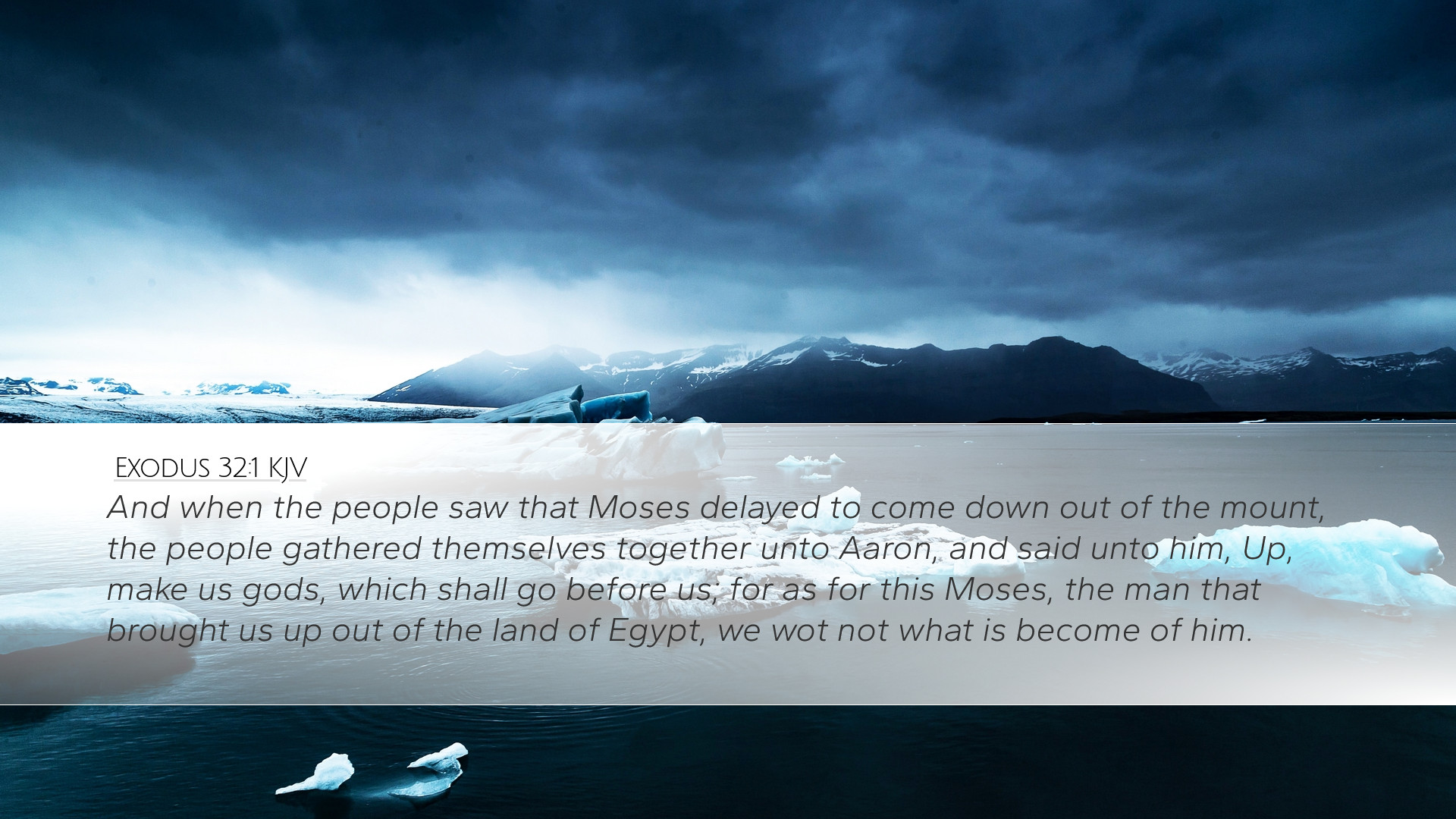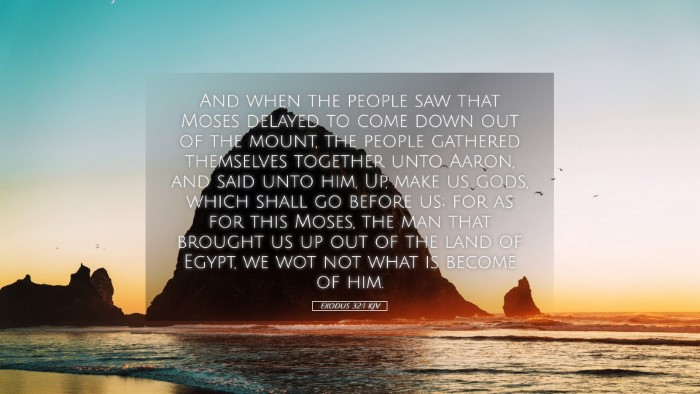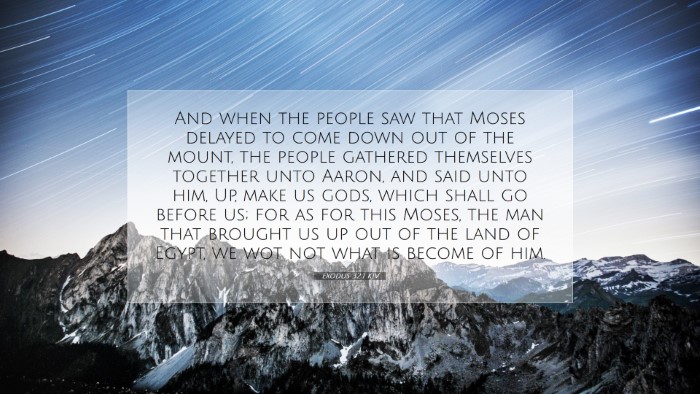Commentary on Exodus 32:1
Exodus 32:1 states: "And when the people saw that Moses delayed to come down out of the mount, the people gathered themselves together unto Aaron, and said unto him, Up, make us gods, which shall go before us; for as for this Moses, the man that brought us up out of the land of Egypt, we wot not what is become of him."
Introduction
This moment in the Book of Exodus encapsulates a critical point in Israel's journey from slavery to freedom. The hesitance of the people and their search for a physical representation of divinity highlights fundamental themes of faith, leadership, and idolatry that resonate throughout the biblical narrative. This commentary will synthesise insights from several public domain sources, enriching our understanding of this pivotal scripture.
The Context of Exodus 32:1
The verse occurs during a significant event where Moses had ascended Mount Sinai to meet with God and receive the Law. His prolonged absence sparked fear and insecurity among the Israelites, shedding light on their need for tangible leadership and guidance. Let's examine several commentaries to gain a deeper understanding.
Matthew Henry's Commentary
Matthew Henry emphasizes the troubling nature of Israel's demand for a god. He writes that it reflects their weakness of faith and discontent with God's appointed leader. Their quick descent into idolatry after witnessing God’s power in Egypt illustrates the profound challenges of spiritually rebellious hearts.
- Delayed Responses: Henry notes that the perceived delay of Moses demonstrates how easily the people fell into doubt when their spiritual guide was not immediately present.
- Consequences of Leadership: Henry points out that the responsibility of leadership is immense; Aaron's failure to stand firm against the crowd’s demands highlights a lack of conviction typical in unstable leadership.
Albert Barnes’ Notes
Albert Barnes provides a detailed analysis of the motivations behind the people's actions. He asserts that their request for visible gods stems from a cultural context where nations worshipped tangible idols. Barnes makes several crucial observations:
- Influence of Surrounding Cultures: He argues that the Israelites were affected by the idolatrous practices of Egypt and the surrounding nations, demonstrating that societal influences can lead to spiritual compromises.
- Reversion to Idolatry: Barnes emphasizes the sheer irony that the people who had experienced the miracles of the Exodus would now seek man-made gods, showing a profound lack of understanding of the nature of God.
Adam Clarke's Commentary
Adam Clarke delves into historical and explanatory nuances regarding the text. He states that the Israelites’ apprehension regarding Moses’ absence showcases a lack of faith in God’s promise and deliverance.
- Moses as a Mediator: Clarke comments on Moses’ role as a mediator between God and the people, noting that their failure to wait for Moses illustrates spiritual immaturity.
- The Nature of Leadership: Clarke also expands on the danger of allowing the people to dictate religious practices; true worship should remain rooted in God’s revelation, not in popular sentiment.
Theological Implications
Exodus 32:1 serves as a profound teaching moment about human nature and our relationship with God. It raises several theological questions:
- The Nature of Faith: How quickly can faith waver in the face of uncertainty? This text invites personal reflection on the strength of one’s own faith under duress.
- Idolatry in Modern Contexts: What are the modern equivalents of the golden calf? Contemporary believers are challenged to consider what distractions and idols might take precedence over their faith in God.
Practical Applications
For pastors, students, and scholars, several lessons can be distilled from this passage:
- Encouraging Faithfulness: Leaders must encourage their communities to remain steadfast in faith, even when situations appear uncertain or when leadership seems distant.
- Addressing Cultural Influences: Be aware of how cultural influences can lead to spiritual compromise, and seek to ground believers in biblical truth against societal tides.
- Teaching Biblical History: Understanding the historical context of Israel’s idolatry yields critical insights into the challenges of worshipping an unseen God.
Conclusion
In summary, Exodus 32:1 captures a moment of crisis within the faith community of Israel—a moment that reverberates through time, shedding light on the complexities of faith, leadership, and the ongoing struggle against idolatry. By studying public domain commentaries, we find a rich tapestry of insights that allow us not only to understand the historical context but also to apply its lessons to our modern lives. In the end, this passage calls for a deeper faith, one that looks beyond the visible and places trust in the God who consistently guides His people.


